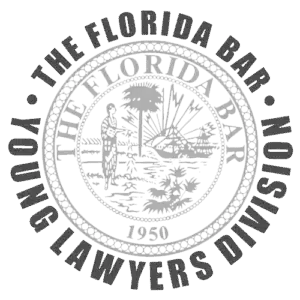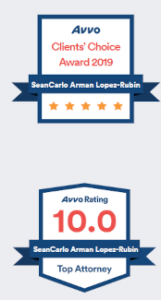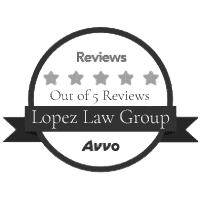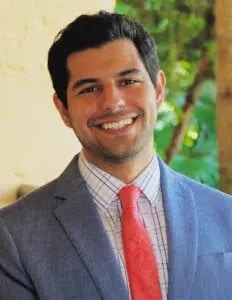Probation Violation Lawyers in St. Petersburg, FL
Florida Attorneys
Serving You and The State of Florida
Your probation officer filed a violation report. A warrant was issued for your arrest. You missed a check-in, failed a drug test, or got arrested for a new charge while still serving probation. Now you face the possibility of losing everything you worked to maintain and serving the original sentence that probation allowed you to avoid.
Lopez Law Group defends clients facing probation violation charges across Pinellas and Manatee Counties. Our St. Petersburg criminal defense practice handles technical violations, new-law violations, and violation-of-probation warrants that threaten to revoke your probation and send you to jail or prison.
Criminal defense consultations are free and confidential. Call our St. Petersburg probation violation lawyer at (727) 933-0015 before you turn yourself in or speak with your probation officer.
Table of Contents
- Key Takeaways for Probation Violation Cases in St. Petersburg
- Choosing Lopez Law Group as Your Probation Violation Defense Attorney
- What Is Probation in Florida?
- Common Types of Probation Violations in St. Petersburg
- Penalties for Probation Violations in St. Petersburg
- Collateral Consequences of Probation Violations
- Defenses to Probation Violation Charges in St. Petersburg
- What Should I Do If My Probation Officer Contacts Me About Violations?
- Violation-of-Probation Warrants and Bond Issues
- FAQ for Probation Violation Cases in St. Petersburg
- Facing Probation Violation Charges in St. Petersburg? Contact Us Now
Key Takeaways for Probation Violation Cases in St. Petersburg
- Probation violation hearings use a lower burden of proof than criminal trials and prosecutors need only prove violations by a preponderance of the evidence
- Missing meetings, failing drug tests, or violating curfew are technical violations that judges might handle with modified terms, while new criminal charges typically result in harsher sanctions, including full revocation
- Contacting an attorney before your probation officer files a violation report allows you to gather compliance evidence, arrange treatment enrollment, and negotiate with your PO
- Probation violations appear on background checks, complicate housing applications, affect professional licenses, and can trigger deportation proceedings for non-citizens
- When judges issue VOP warrants, they frequently order defendants held without bond until the violation hearing, meaning you remain in jail waiting for your court date
Choosing Lopez Law Group as Your Probation Violation Defense Attorney

Pinellas County Court Experience
We practice daily in the St. Petersburg criminal courts, where probation violation hearings are held. Our attorneys understand how Pinellas County judges handle technical versus substantive violations, which prosecutors negotiate modified terms versus pushing for revocation, and how local probation officers document violations.
This experience shapes strategy from initial violation reports through final hearings.
Pre-Violation Intervention That Protects Your Freedom
When you contact us before your probation officer files a violation report, we help you gather documentation showing compliance efforts, arrange enrollment in treatment programs or community service, and communicate directly with your PO to address concerns.
If a violation report has already been filed or a warrant issued, we coordinate safe surrenders that avoid additional charges, work to secure bond when judges initially deny it, and prepare for violation hearings while you remain in custody.
Defense Strategy Built on Technical Knowledge
Probation violation defense requires understanding the specific terms of your probation, identifying procedural errors in how violations were documented, and presenting evidence that challenges the State’s claims.
We examine probation orders for ambiguous conditions, investigate whether you received proper notice of requirements, and assemble witnesses and documentation that support your compliance or explain unavoidable circumstances that caused technical violations.
Criminal defense consultations are free and confidential. Call (727) 933-0015 to discuss your case before your next probation meeting or court date.
What Is Probation in Florida?
Probation is court-ordered supervision that allows individuals convicted of crimes to serve sentences in the community rather than jail or prison. Florida courts impose probation as an alternative to incarceration or as a condition following release from custody.
Probationers must follow specific rules set by judges and monitored by probation officers employed by the Florida Department of Corrections.
Types of Probation in Florida

Community control operates as house arrest with electronic monitoring through GPS ankle bracelets. Community control probationers must remain at approved locations and face more restrictive curfews and movement limitations than standard probation. Violations of community control result in harsher sanctions because judges view GPS monitoring as a final opportunity before incarceration.
Sex offender probation imposes additional requirements, including mandatory polygraph examinations, specialized treatment programs, residency restrictions that prohibit living near schools or parks, and limitations on internet use and contact with minors. Sex offender probation terms extend longer than standard probation and carry stricter violation consequences.
Drug offender probation typically includes frequent random drug testing, mandatory participation in substance abuse treatment programs, and attendance at support group meetings. Some drug offender probation orders prohibit alcohol consumption even when the underlying offense involved only illegal drugs.
Common Types of Probation Violations in St. Petersburg
Probation violations fall into two main categories under Florida law: technical violations and substantive violations. Understanding the difference helps predict how prosecutors and judges will handle your case.
Technical Violations
Technical violations occur when probationers fail to follow specific probation rules without committing new crimes. Common technical violations in Pinellas County include:
- Missing probation officer meetings. Failing to report as scheduled shows the court you are not complying with supervision requirements. Even one missed appointment can trigger violation reports.
- Failing drug or alcohol tests. Positive test results violate conditions requiring sobriety. Probation officers test for illegal drugs and alcohol, and prescribed medications sometimes produce false positives that require documentation from physicians.
- Not completing community service hours. Courts impose community service as restitution to the community. Failing to complete assigned hours by the deadline dates constitutes a violation of probation terms.
- Missing counseling or treatment sessions. Mandatory anger management, substance abuse treatment, or mental health counseling sessions cannot be skipped without advance approval from probation officers.
- Violating curfew or GPS restrictions. Probationers on community control must remain at approved locations during specified hours. GPS monitoring alerts probation officers immediately when you leave authorized zones.
- Failing to maintain employment or education. Some probation orders require full-time work or school enrollment. Losing a job or dropping out without immediately finding replacement employment or education violates these terms.
- Not paying court costs, fines, or restitution. Florida law requires probationers to pay supervision costs, court fees, restitution to victims, and other financial obligations. Inability to pay requires filing formal requests for modification before payment deadlines pass.
- Leaving the county or state without permission. Most probation orders restrict travel outside Pinellas County without advance written approval from probation officers. Emergency travel requires immediate notification and documentation.
Substantive Violations
Substantive violations happen when probationers are arrested for new crimes while serving probation. New-law violations are considered more serious than technical violations because they demonstrate continued criminal conduct rather than mere failure to follow administrative rules.
New arrests trigger violation proceedings even before convictions occur. Prosecutors file violation-of-probation charges based solely on probable cause that you committed a new offense, and judges can find you in violation and revoke probation before the new criminal case resolves.
Penalties for Probation Violations in St. Petersburg
Florida judges have broad discretion when sanctioning probation violations. Penalties range from warnings and modified terms to full revocation and incarceration for the maximum sentence originally imposed.
Sanctions for Technical Violations

Modified probation terms add conditions or increase supervision without revoking probation entirely:
- More frequent probation officer meetings
- Additional community service hours
- Enrollment in treatment or counseling programs
- Stricter curfews or GPS monitoring
- Extension of probation period
- House arrest or electronic monitoring
Short jail sanctions punish technical violations with brief incarceration periods, typically ranging from several days to 90 days in county jail. After completing jail time, probationers return to community supervision.
Consequences of Substantive Violations
Probation revocation terminates probation and imposes the original sentence that probation allowed you to avoid. When judges revoke probation, they can sentence you to any term up to the maximum penalty for your original conviction.
For example, if you were convicted of a third-degree felony carrying five years maximum prison sentence and received probation instead, revocation allows the judge to impose up to five years in prison. Credit for time already served on probation does not reduce prison sentences after revocation.
Combined sentences stack new convictions with revoked probation sentences. If your new arrest results in conviction, judges can sentence you consecutively for both the new crime and the revoked probation, resulting in significantly longer incarceration.
Collateral Consequences of Probation Violations
Besides technical and substantive penalties, a probation violation can have other consequences.
Employment and Professional Licenses
Probation violations appear on background checks that employers review during hiring processes. Fields requiring professional licenses often have strict rules against employing individuals with probation violations.
Current employers may terminate employees who are incarcerated following probation revocations.
Housing and Education
Landlords and public housing agencies conduct background checks on rental applicants. Probation violations lead to application denials and limit access to affordable housing.
Colleges review criminal records during admissions, and federal financial aid programs impose restrictions on students with certain criminal convictions.
Immigration Consequences
Non-citizens face deportation and removal proceedings following probation violations regardless of immigration status, length of residence in the United States, or family ties.
Probation violations complicate applications for citizenship, green cards, visa renewals, and relief from removal.
Defenses to Probation Violation Charges in St. Petersburg
Probation violation hearings operate differently than criminal trials, but defendants still have rights and defenses that challenge the State’s claims.
Lack of Willful Violation

- Medical emergencies that prevented probation meetings or community service
- Hospitalization or serious illness
- Car breakdowns or lack of transportation when no public transit exists
- Inability to pay costs due to unemployment despite good faith job search efforts
Documentation supporting non-willful claims—medical records, termination notices, repair receipts, job applications—strengthens these defenses.
Challenging Violation Report Accuracy
Probation officers sometimes make mistakes or misunderstand facts when filing violation reports. Examples include:
- Drug test false positives from prescribed medications with physician documentation
- Claimed missed meetings that actually occurred with sign-in sheets or witness testimony
- GPS alerts from equipment malfunctions rather than actual location violations
- Payment records showing timely court cost payments that probation officers failed to record
Constitutional and Procedural Defenses
Due process violations occur when courts fail to provide adequate notice of probation terms, hearings, or requirements. Improper searches that violate Fourth Amendment rights can be challenged even in probation contexts.
Ambiguous probation conditions that fail to clearly specify prohibited or required conduct cannot support violation findings.
Substantial Compliance
Even when technical violations occurred, demonstrating substantial compliance with probation terms overall can convince judges to impose lenient sanctions rather than revocation. Evidence includes completion of treatment programs, consistent negative drug tests aside from isolated positive results, steady employment, and regular attendance at most probation meetings.
What Should I Do If My Probation Officer Contacts Me About Violations?
If your PO contacts you about violations, you need to take immediate action to protect yourself.
Call Lopez Law Group Immediately
Contact (727) 933-0015 before meeting with your probation officer about violation allegations. Your attorney can attend meetings with you, communicate directly with probation officers on your behalf, and help gather evidence that addresses compliance concerns before formal violation reports are filed.
Early legal intervention prevents many violation reports from being submitted. When probation officers see that probationers take compliance seriously and have legal representation, they frequently agree to informal warnings or modified terms rather than formal violation proceedings.
Do Not Admit Violations
Statements you make to probation officers can and will be used against you at violation hearings. Do not admit violations, make excuses, or try to explain circumstances without your attorney present. Politely tell your probation officer that you want to consult with your criminal defense lawyer before discussing any allegations.
Document Everything and Gather Compliance Evidence
Keep detailed records of all probation compliance efforts including sign-in sheets, pay stubs, school records, payment receipts, drug test results, and communication with probation officers.
If violations did occur, immediately begin gathering evidence showing steps you are taking to comply by enrolling in treatment programs, completing overdue community service hours, and making payments toward outstanding court costs.
Violation-of-Probation Warrants and Bond Issues

If you learn that a VOP warrant has been issued, surrendering through your attorney prevents additional charges and allows your lawyer to immediately file bond motions. Your attorney can file emergency motions for bond even when judges initially deny it, emphasizing strong community ties, compliance history, steps already taken to address violations, and minimal flight risk.
FAQ for Probation Violation Cases in St. Petersburg
What Is the Burden of Proof in Florida Probation Violation Hearings?
Prosecutors must prove violations by a preponderance of the evidence—meaning more likely than not that violations occurred. This standard is significantly lower than the beyond- a reasonable doubt burden required in criminal trials, making it easier for the State to prevail at violation hearings.
Do Arrests That Do Not Result in Convictions Count as Probation Violations?
Yes. Probation violation proceedings are civil rather than criminal, allowing judges to find substantive violations based on probable cause that you committed new offenses even if criminal charges are later dismissed or result in acquittal. The lower burden of proof means arrest reports and witness statements can support violation findings without criminal convictions.
Will I Go to Jail for Technical Probation Violations?
Not necessarily. Judges have discretion to impose modified probation terms, additional community service, extended probation periods, or short jail sanctions rather than full revocation for technical violations. First-time technical violations by probationers with otherwise good compliance records often result in warnings or modified terms rather than incarceration.
How Long Do Probation Violation Hearings Take?
Violation hearings in Pinellas County typically occur within 30 to 45 days after warrants are issued, though courts sometimes schedule emergency hearings sooner when defendants are held without bond. The length of hearings can vary, depending on witness testimony and evidence presented.
Can Probation Be Reinstated After Revocation?
Once probation is revoked and you are sentenced to jail or prison, reinstatement becomes very difficult. Some judges allow probationers to withdraw violation admissions and reinstate probation if circumstances change, but this rarely occurs. Fighting revocation at the initial hearing is critical because options disappear after final revocation orders are entered.
Facing Probation Violation Charges in St. Petersburg? Contact Us Now

SeanCarlo Lopez, Probation Violation Lawyers in St. Petersburg
Probation violation proceedings threaten to undo everything you worked to maintain while serving community supervision. One missed meeting, one failed drug test, one arrest can result in years of incarceration that probation originally allowed you to avoid.
Lopez Law Group offers free, confidential criminal defense consultations for clients facing probation violation charges in St. Petersburg, Clearwater, Tampa, and throughout Pinellas and Manatee Counties. We defend technical violations, new-law violations, and violation-of-probation warrants that put your freedom at immediate risk.
Do not admit violations to your probation officer without consulting your attorney. Exercise your right to legal counsel and contact Lopez Law Group immediately at (727) 933-0015. Early intervention prevents formal violation reports, coordinates safe surrenders when warrants are issued, and builds defense strategies that protect your probation status and freedom.
Lopez Law Group – Office
700 7th Ave N Suite A,
St. Petersburg, FL 33701
Ph: (866) 256-2356
Practice Areas
What Our Clients Say
A Godsend
Mr. Lopez was a Godsend and really helped me with my situation. Him and the entire firm were very diligent and helped speed the early stages of the process along due to a pressing situation. Throughout my experience working with the firm, they were always responsive and available any time I had a question or wanted to check on the state of affairs. Hopefully I won’t have to recommend Lopez Law Group to my friends or family, but if those unfortunate circumstances arise then there’s only one name I would trust. Thank you again for all your help!
Lopez Law Group Can See You Through Cases Like:
Don't See What You Need?
Lopez Law Group
700 7th Ave N, Suite A,
St. Petersburg, FL 33701
P: 727-933-0015
Business Hours
Mo, Tu, We, Th, Fr
Schedule a Call Back
Book a Consultation






















